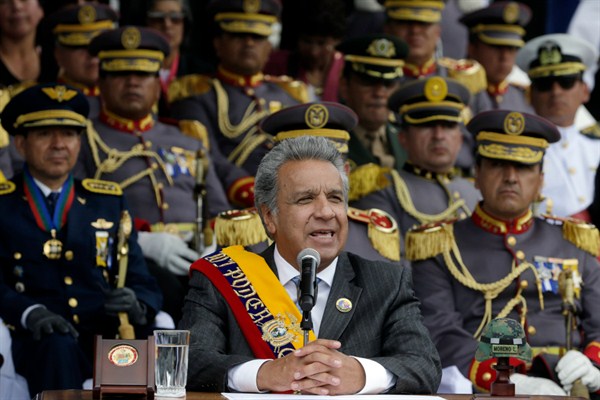It didn’t take long for Ecuador’s new president, Lenin Moreno, who assumed office less than three months ago, to distance himself from his predecessor, Rafael Correa.
Correa, whose highly personalized rule dominated Ecuadorean politics for more than a decade, had handpicked Moreno, his vice president from 2007 to 2013, to run to succeed him earlier this year. Correa’s prominent place in Latin America’s leftist tide has receded as the commodity boom turned into a bust. But he trusted that, as he headed for semi-retirement in Europe, Moreno would faithfully carry on his “citizens’ revolution.” That Correa’s second vice president since 2013 and his close confidante, Jorge Glas, was also Moreno’s vice president would seem to ensure continuity.
Yet beginning with Moreno’s inaugural speech, in which he struck a conciliatory tone in stark contrast with Correa’s more confrontational style, there were indications that the new president was looking to chart his own course. Diplomats who attended the inauguration were struck by the notable shift and wondered whether it might augur a different kind of politics in Ecuador. Many took note when Moreno appointed a journalist from the private media to run the state-owned newspaper.

